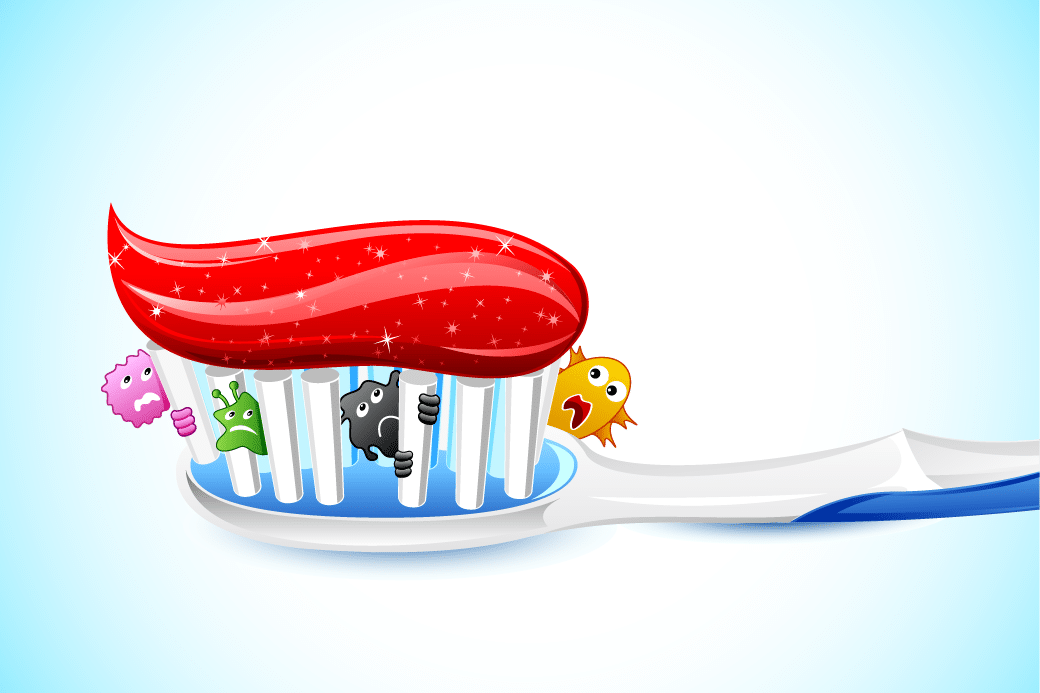Establishing and maintaining good oral health is not only vital to the structure and function of your oral cavity, it is also vital to your overall health. This means that the time you spend protecting against tooth decay and gum disease is also protecting you against dangerous illnesses like diabetes and heart disease. Of course, the oral hygiene habits that will help you maintain good oral health involve not only cleaning your teeth and mouth, but using the right tools and techniques to do so. To that end, your dentist has always encouraged you to brush your teeth at least twice a day and floss your teeth at least once a day in order to remove food particles, bacteria and plaque from your mouth. She will also encourage you to use a specific type of toothbrush, and take good care of and replace that toothbrush often so as to reduce the chance of reintroducing harmful oral bacteria that has been removed from the mouth.
The Role Your Toothbrush Plays
While most everyone understands the vital importance of protecting their oral health, few people understand the vital importance of specifically preserving their tooth enamel. This hard, outer layer on your teeth protects not only your teeth themselves, but also the tissue and delicate nerves at the center of your teeth. Once tooth enamel is gone it cannot come back, which is why it is so incredibly important to protect it against erosion. Plaque, the sticky film that coats your teeth, is filled with harmful oral bacteria that produce enamel-eroding acids. This is where your toothbrush comes in–scrubbing away plaque and better protecting your tooth enamel. That said, certain types of toothbrushes may have a tendency to hold onto bacteria, essentially reintroducing these bacteria to the mouth with each use.
Researchers at the University of Texas Health Science Center at the Houston School of Dentistry have indicated that traditional, hollow-head toothbrushes tend to retain some oral bacteria after use. This obviously means that they have a more limited helpfulness in reducing bacteria from the oral cavity, simply because even as they are helping to eradicate harmful oral bacteria they are also reintroducing some harmful oral bacteria to the mouth. Conversely, researchers discovered that the bacteria count on solid-head power toothbrushes was consistently lower, indicating that these types of toothbrushes are a better option for helping to preserve oral cavity health while also not reintroducing the very bacteria one is attempting to eliminate.
Unsurprisingly and according to researchers, toothbrushes that are contaminated with bacteria can adversely affect an individual’s oral health, much in the same way that failing to remove harmful oral bacteria from the mouth can adversely affect an individual’s oral health. This is just one of the many reasons for why your dentist recommends that you regularly replace your toothbrush. However, in order to better protect against contamination, a solid-head power toothbrush is the best way to go.
In addition to selecting a solid-head power toothbrush, you can further protect against potential bacteria contamination by disinfecting your toothbrush after each use, and allowing it to fully air-dry between uses. To this end, many power toothbrushes actually come with an ultraviolet cleaning system to help reduce or eliminate bacteria build-up. For those who are more comfortable using traditional, hollow-head toothbrushes, researchers recommend that one soaks their toothbrush in disinfecting mouthwash for twenty minutes after each use and before allowing them to fully air-dry.
Protecting Your Oral Health
While it is certainly true that certain toothbrushes can hold onto some bacteria, it is important to weigh the many benefits of brushing your teeth every day against the potential, minimal risks posed by potential lingering toothbrush bacteria. The sheer volume of plaque, bacteria and food particles that proper brushing can eliminate from your teeth and mouth makes twice-daily brushing absolutely worth it. By carefully selecting the right sort of toothbrush and by taking good care of this toothbrush and replacing it when necessary and prudent, you can reduce the possibility of collecting harmful oral bacteria on your toothbrush.
For more information about how to effectively reduce or eliminate bacteria from your toothbrush and which toothbrush may be best for you, contact your dentist, Dr. Saferin, today.


